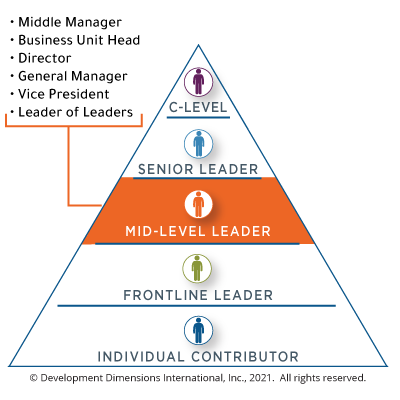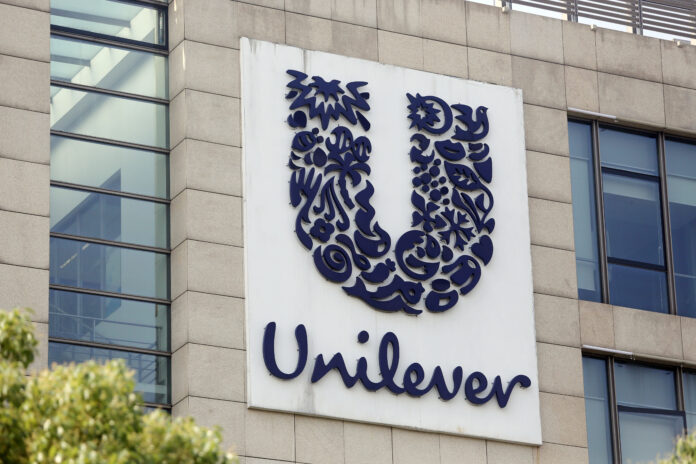The Crucial Role Of Middle Managers: Benefits For Companies And Employees

Table of Contents
Bridging the Gap Between Leadership and Employees
Middle managers act as the vital link between senior leadership and frontline employees. They are the conduit through which strategic goals are communicated and implemented. This critical role ensures that company-wide objectives are understood and acted upon at all levels of the organization.
- Effective Communication: Middle managers communicate company strategies, goals, and expectations clearly and effectively, translating complex directives into actionable plans for their teams. They ensure everyone is on the same page, minimizing confusion and misinterpretations.
- Actionable Plans: They break down complex, high-level strategies into smaller, more manageable tasks for individual contributors and teams. This ensures clear accountability and allows for more efficient progress tracking.
Benefits for Companies:
- Improved communication throughout the organization.
- Increased employee engagement due to clearer understanding of company goals.
- Better execution of strategic initiatives as plans are effectively translated and implemented.
Benefits for Employees:
- Clearer understanding of company goals and how their work contributes to the bigger picture.
- Improved guidance and support from their direct supervisors.
- Enhanced career development opportunities through mentorship and performance feedback.
Fostering Teamwork and Collaboration
Middle managers are responsible for building strong, collaborative teams. They cultivate a positive work environment that fosters teamwork and open communication. Effective middle managers recognize the importance of team dynamics and actively work to improve them.
- Team Building: They implement team-building activities, fostering open dialogue and creating a sense of camaraderie among team members. This can include activities such as team lunches, offsite events, or even informal team-building exercises during work hours.
- Conflict Resolution: They identify and resolve conflicts effectively, promoting a harmonious workplace where disagreements are addressed constructively. This involves active listening, mediation, and fair conflict resolution practices.
Benefits for Companies:
- Increased productivity through improved teamwork and collaboration.
- Improved innovation as diverse perspectives and ideas are encouraged and valued.
- Reduced employee turnover resulting from a more positive and supportive work environment.
Benefits for Employees:
- Stronger team bonds leading to increased job satisfaction.
- Enhanced job satisfaction and improved morale due to a supportive work environment.
- A collaborative work environment that fosters learning and growth.
Driving Performance and Productivity
Middle managers set clear expectations, provide regular feedback, and monitor performance. They are responsible for driving productivity within their teams. This involves utilizing performance management tools and strategies to ensure consistent high performance.
- Performance Management: This includes conducting regular performance reviews, setting SMART (Specific, Measurable, Achievable, Relevant, Time-bound) goals, and providing constructive feedback.
- Talent Development: They identify areas for improvement and implement strategies to enhance team productivity, including providing training opportunities, mentoring, and coaching.
Methods:
- Performance reviews and appraisals.
- Goal setting and progress tracking.
- Talent development programs and training initiatives.
- Regular one-on-one meetings for feedback and guidance.
Benefits for Companies:
- Higher levels of output and improved quality of work.
- Greater efficiency through improved team processes and performance.
- Stronger business outcomes as a result of higher performing teams.
Benefits for Employees:
- Career progression opportunities based on performance and development.
- Skill enhancement through training and development initiatives.
- Increased job satisfaction stemming from accomplishment and recognition.
Mentorship and Employee Development
Middle managers play a crucial role in identifying and nurturing talent within their teams. They provide mentorship and guidance to help employees reach their full potential, acting as advocates for their team members and supporting their career growth.
- Talent Identification: They proactively identify high-potential employees and provide them with opportunities for advancement.
- Career Development: They provide training opportunities, mentorship, and sponsorship to help employees progress in their careers.
Benefits for Companies:
- Increased employee retention rates as employees feel valued and supported.
- A stronger talent pipeline by developing internal talent.
- Improved organizational capability as employees gain skills and experience.
Benefits for Employees:
- Clear career advancement opportunities within the company.
- Opportunities for skill development and professional growth.
- Increased job security and sense of belonging within the organization.
Championing Change and Innovation
Middle managers are often on the front lines of implementing organizational changes and driving innovation. They act as change agents, ensuring smooth transitions and promoting new ideas.
- Change Management: They effectively communicate changes to their teams, managing the transition process and addressing concerns.
- Innovation: They encourage and support innovative ideas from their team members, fostering a culture of improvement and creativity.
Benefits for Companies:
- Successful change management with minimal disruption.
- Increased adaptability to market changes and competitive pressures.
- Improved competitiveness through innovation and continuous improvement.
Benefits for Employees:
- Clear understanding of organizational changes and their implications.
- Smoother transitions during periods of change.
- Opportunities to contribute new ideas and drive positive change.
Conclusion
Effective middle management is not just beneficial—it's crucial for organizational success. From bridging the gap between leadership and employees to driving performance and fostering innovation, middle managers play a multifaceted and indispensable role. Investing in developing strong middle management capabilities is investing in the future of your company. By recognizing and nurturing the crucial role of middle managers, companies can unlock significant benefits for both themselves and their employees. Are you ready to empower your middle managers and unlock the full potential of your organization? Invest in strengthening your middle management today.

Featured Posts
-
 Build Your Winter Weather Timeline For Optimal Preparedness
Apr 25, 2025
Build Your Winter Weather Timeline For Optimal Preparedness
Apr 25, 2025 -
 Bayerns Dramatic Win Extends Bundesliga Lead To 11 Points
Apr 25, 2025
Bayerns Dramatic Win Extends Bundesliga Lead To 11 Points
Apr 25, 2025 -
 Unilever Reports Higher Than Expected Sales Demand And Pricing Strategies Pay Off
Apr 25, 2025
Unilever Reports Higher Than Expected Sales Demand And Pricing Strategies Pay Off
Apr 25, 2025 -
 China To Lift Sanctions On Eu Lawmakers Financial Times Report
Apr 25, 2025
China To Lift Sanctions On Eu Lawmakers Financial Times Report
Apr 25, 2025 -
 Nfl Draft 2025 Bears In Contention For Electrifying Offensive Talent
Apr 25, 2025
Nfl Draft 2025 Bears In Contention For Electrifying Offensive Talent
Apr 25, 2025
